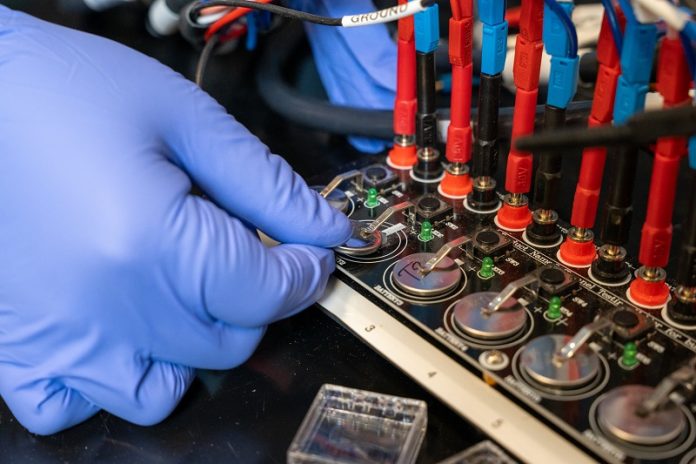
Scientists have uncovered why rechargeable batteries lose power over time, a problem many of us recognize when older phones run out of charge faster.
This breakthrough could help improve electric vehicle (EV) batteries, making them last longer and drive farther. It could also boost clean energy storage, a key to reducing our reliance on fossil fuels.
The research, led by Professor Michael Toney from the University of Colorado Boulder, was published in Science.
Toney and his team studied lithium-ion batteries, the most common type used in EVs, phones, and other devices.
These batteries work by moving lithium ions back and forth between two parts of the battery, called the anode and cathode, through a liquid known as an electrolyte. When you charge the battery, the ions return to the anode, storing energy.
However, over time, batteries lose their ability to hold a charge. Until now, scientists thought this happened because some lithium ions fail to return to the anode. But Toney’s team discovered a surprising new cause.
Using a powerful X-ray machine at a U.S. Department of Energy lab, they found that hydrogen molecules from the electrolyte sneak into the cathode and take the spots meant for lithium ions. This reduces the battery’s ability to store energy and weakens its power.
This discovery is a game-changer for EVs. Today’s EV batteries typically last seven to 10 years before needing replacement.
Their limited lifespan, along with high costs and shorter driving ranges, are major challenges for manufacturers. EVs usually travel about 250 miles on a single charge, significantly less than gasoline cars.
To address these issues, engineers are exploring cobalt-free batteries. Cobalt, often used in lithium-ion batteries, is expensive, harmful to the environment, and linked to human rights abuses, especially in the Democratic Republic of Congo, where much of it is mined. While alternatives like nickel and magnesium are promising, they tend to worsen the problem of battery degradation.
The new findings could help engineers design better batteries. For example, they could coat the cathode with materials that block hydrogen molecules or use different electrolytes. Such improvements might extend battery life, reduce costs, and make EVs more practical for everyday use.
“Understanding why batteries degrade is a huge step forward,” Toney said. “Now we can guide battery developers on how to improve their designs, helping to make EVs more efficient, affordable, and sustainable.”
By solving this puzzle, scientists are bringing us closer to cleaner transportation and a greener future.
Source: CU Boulder.



